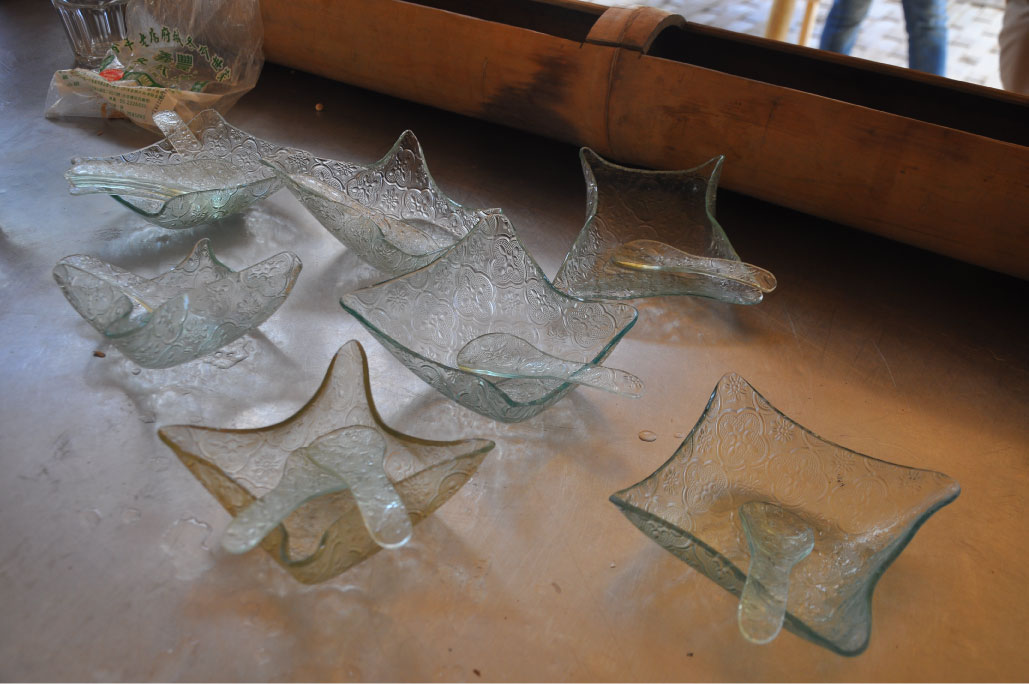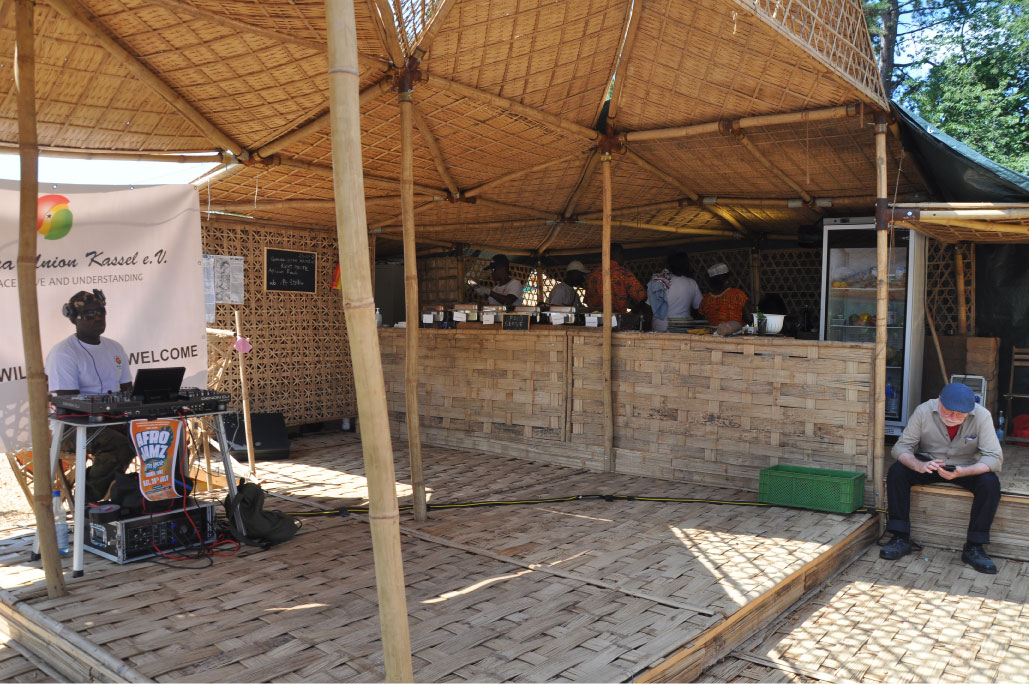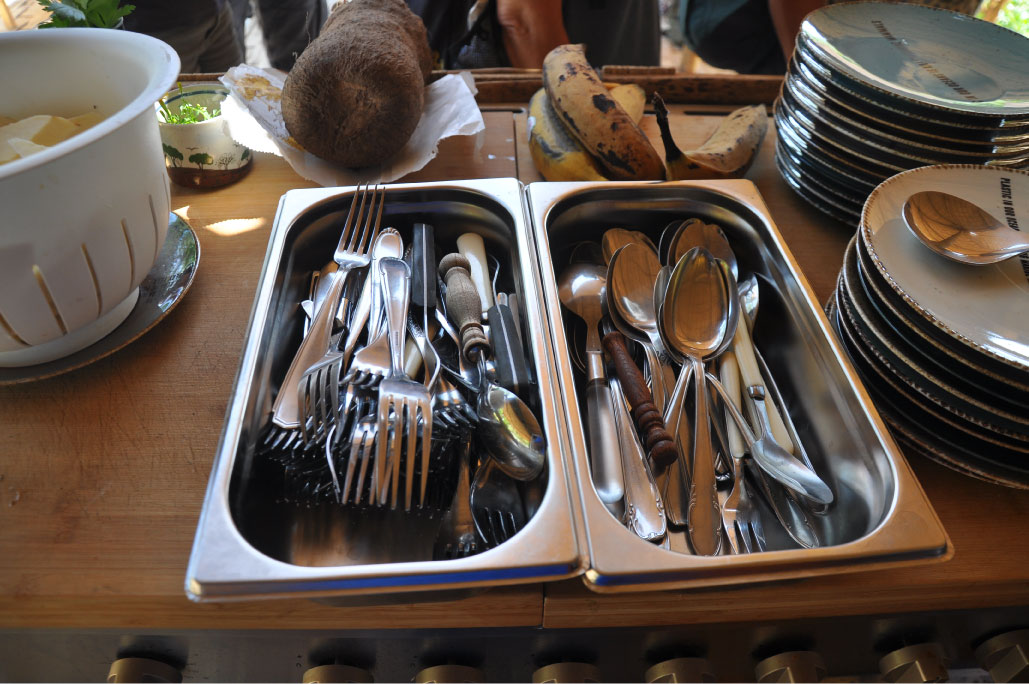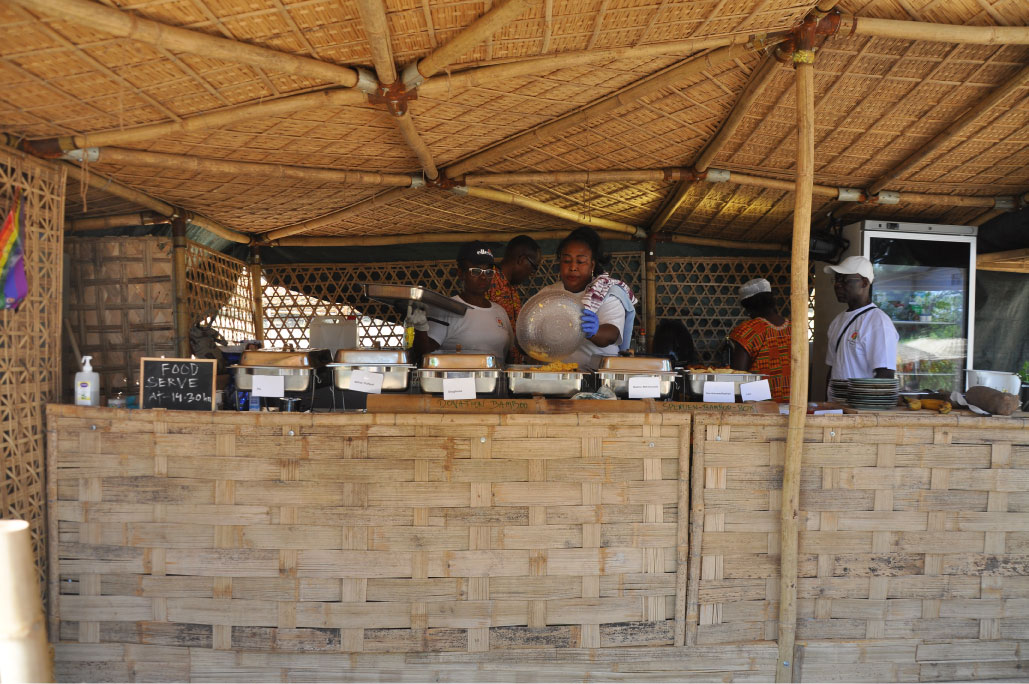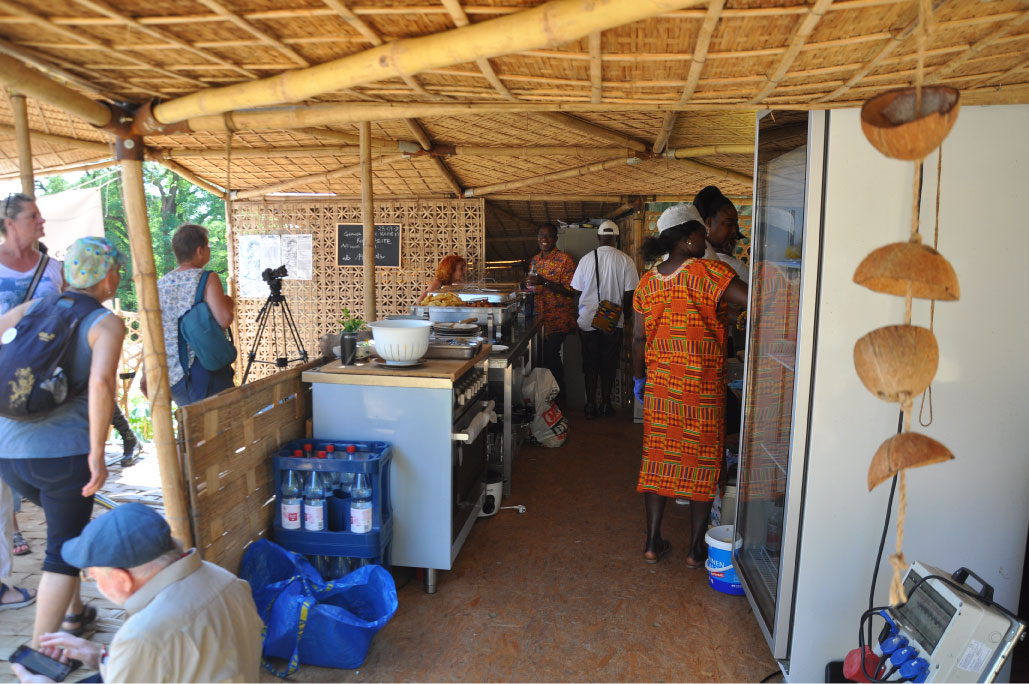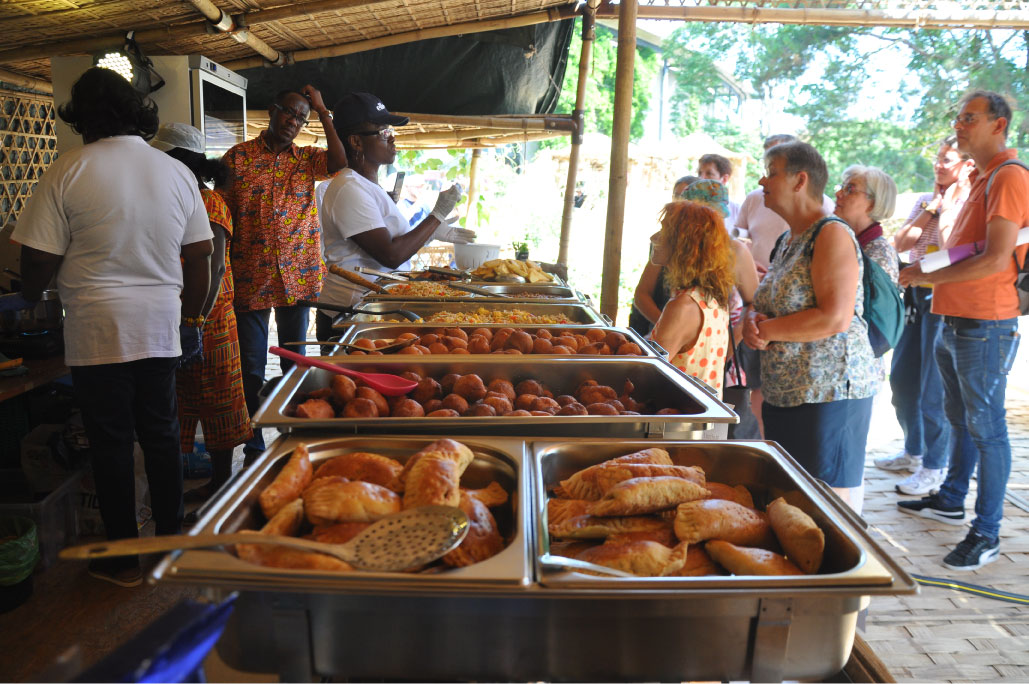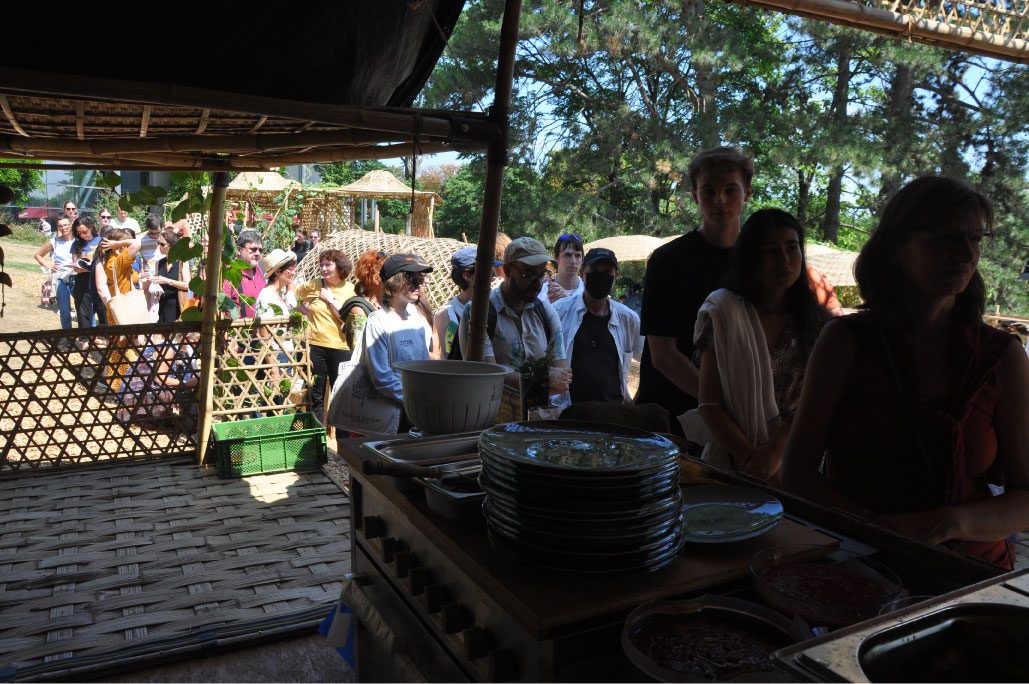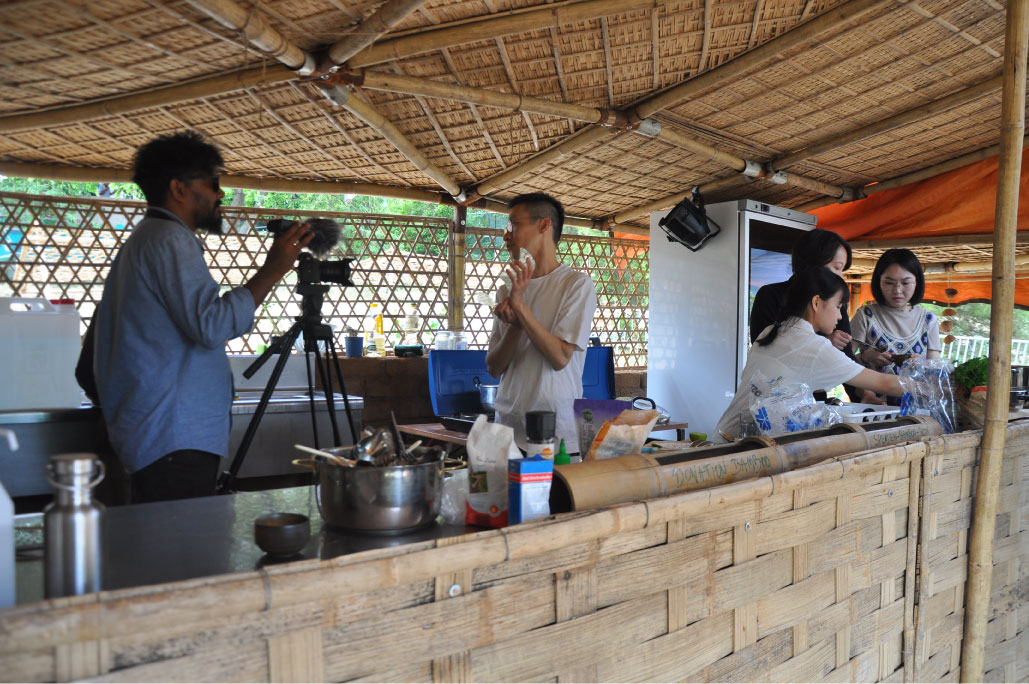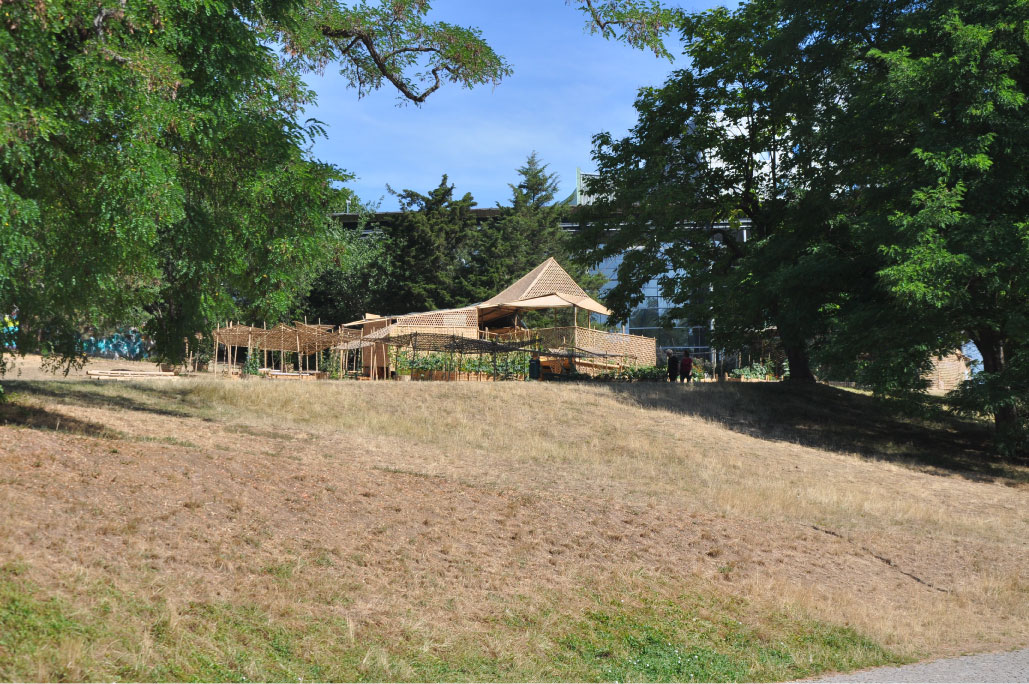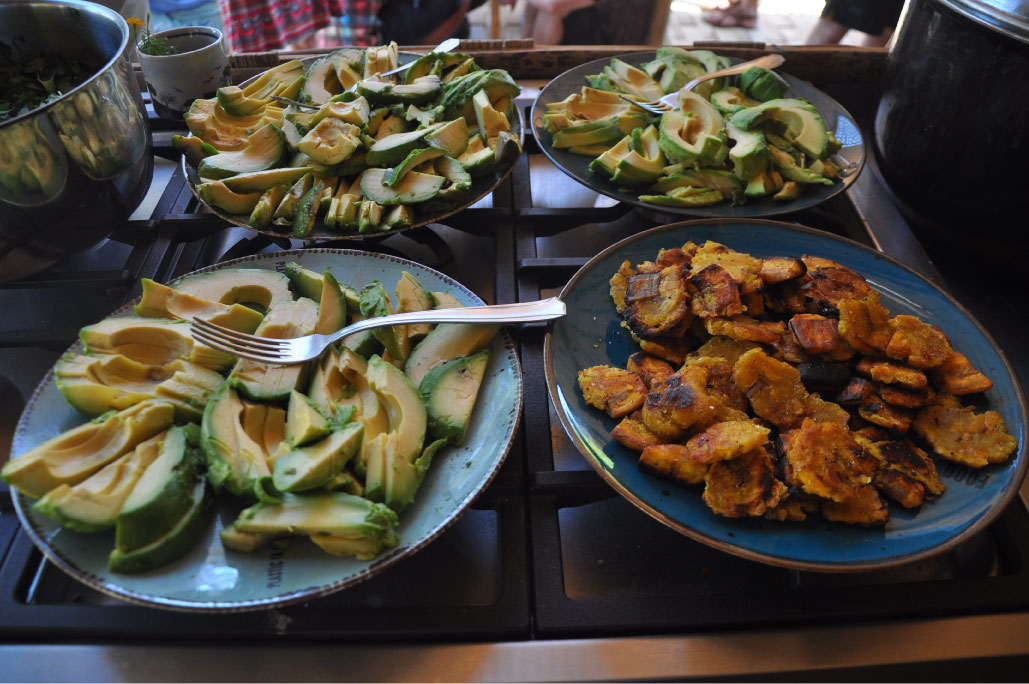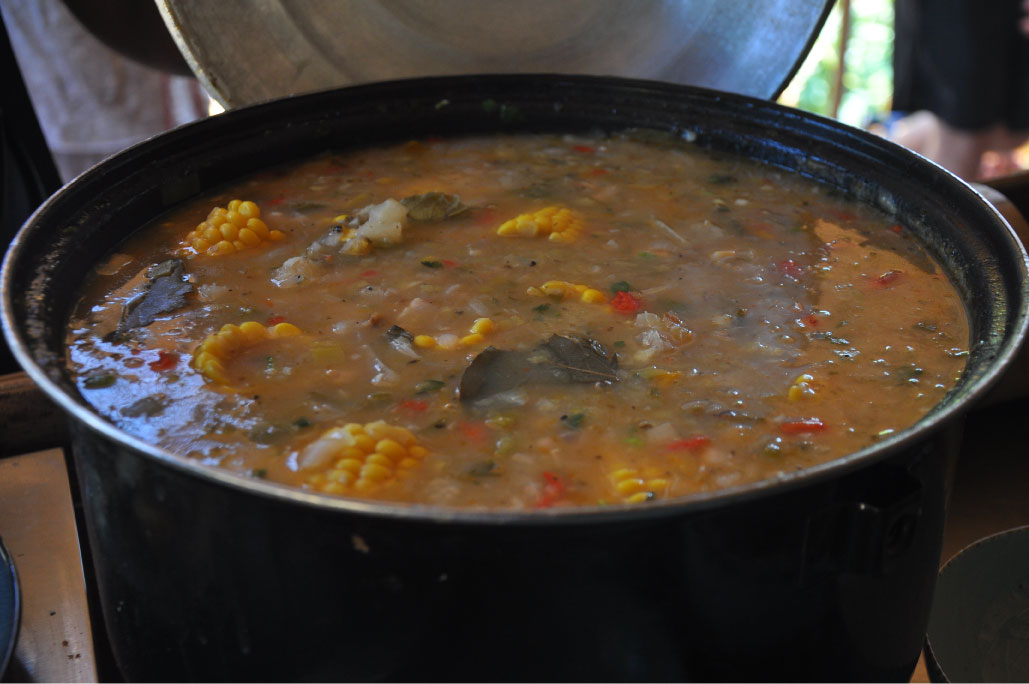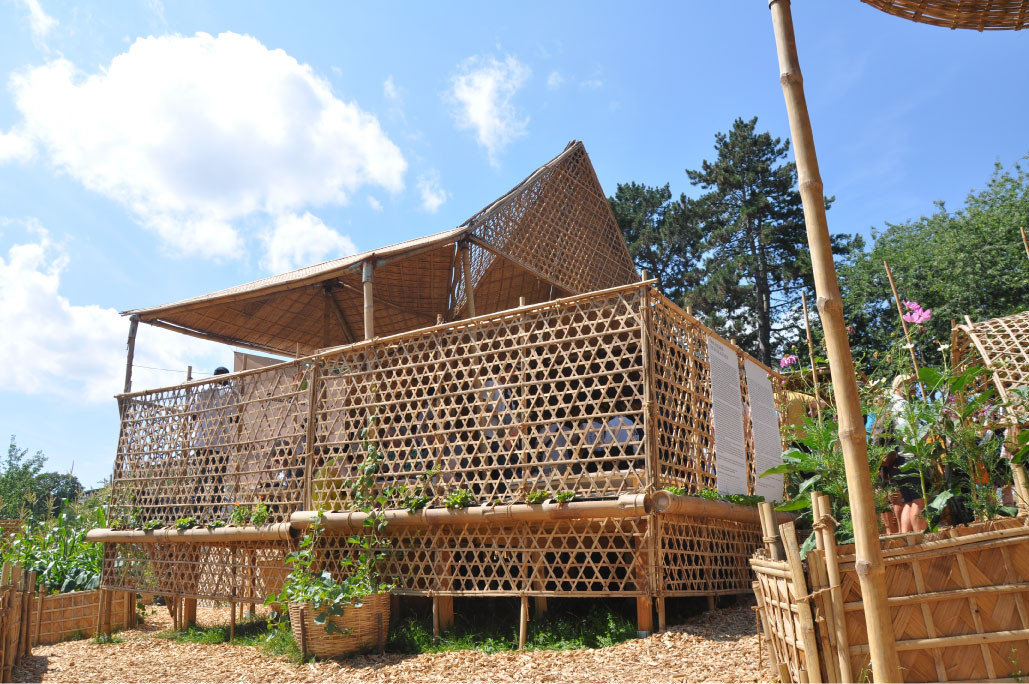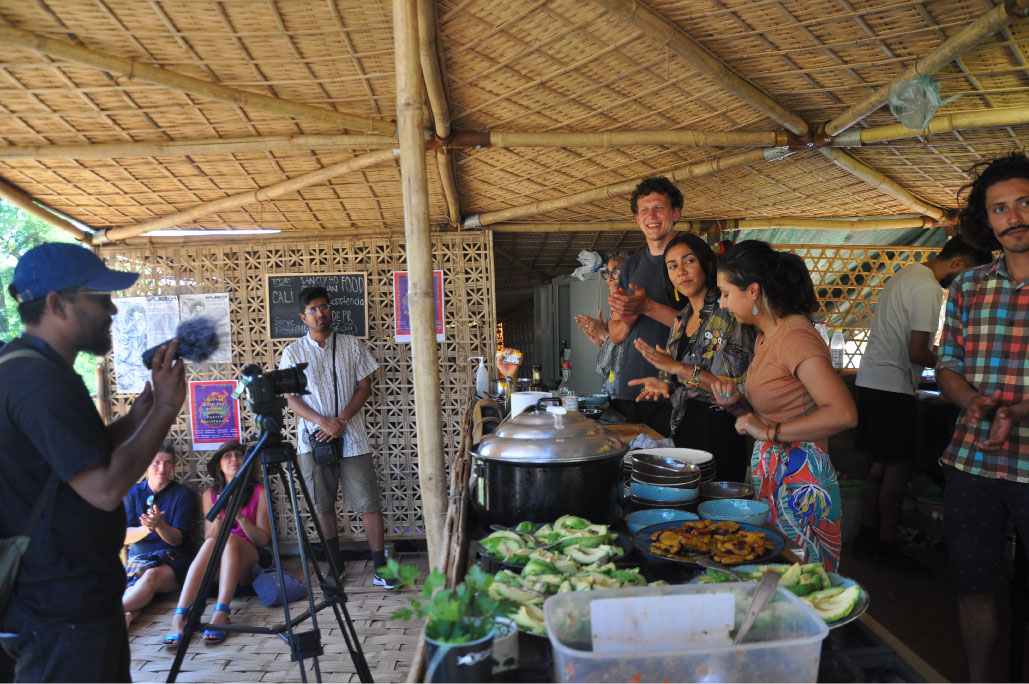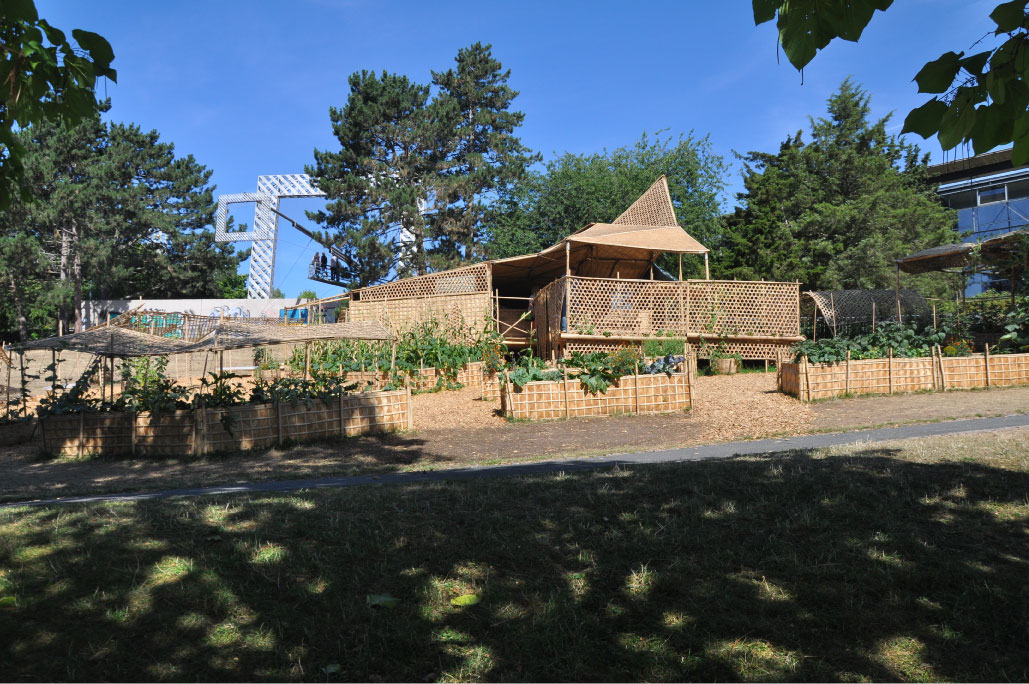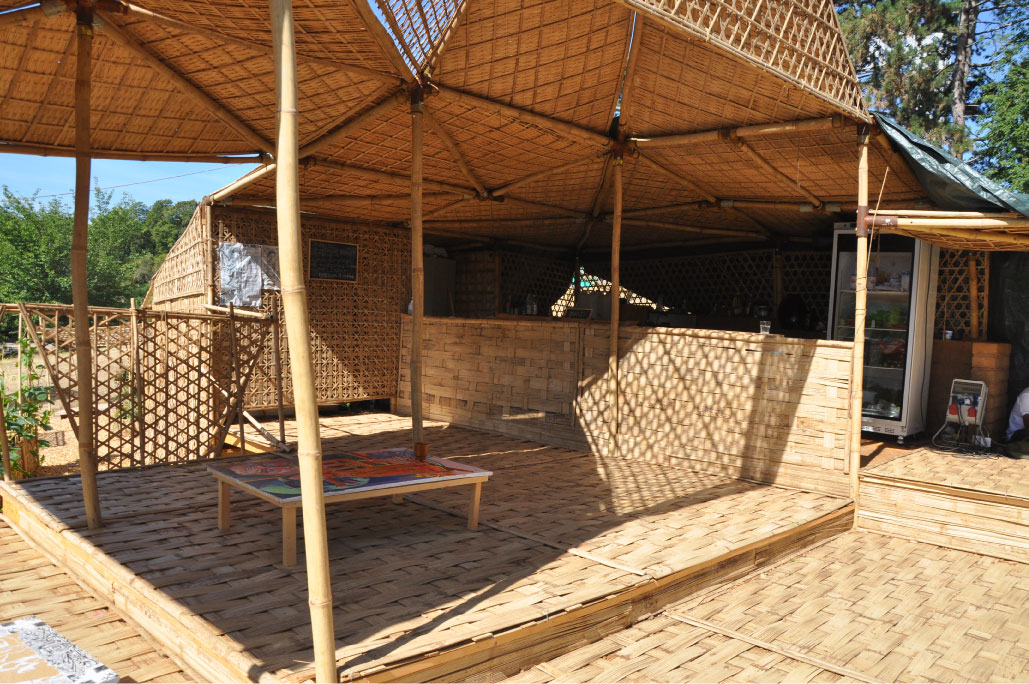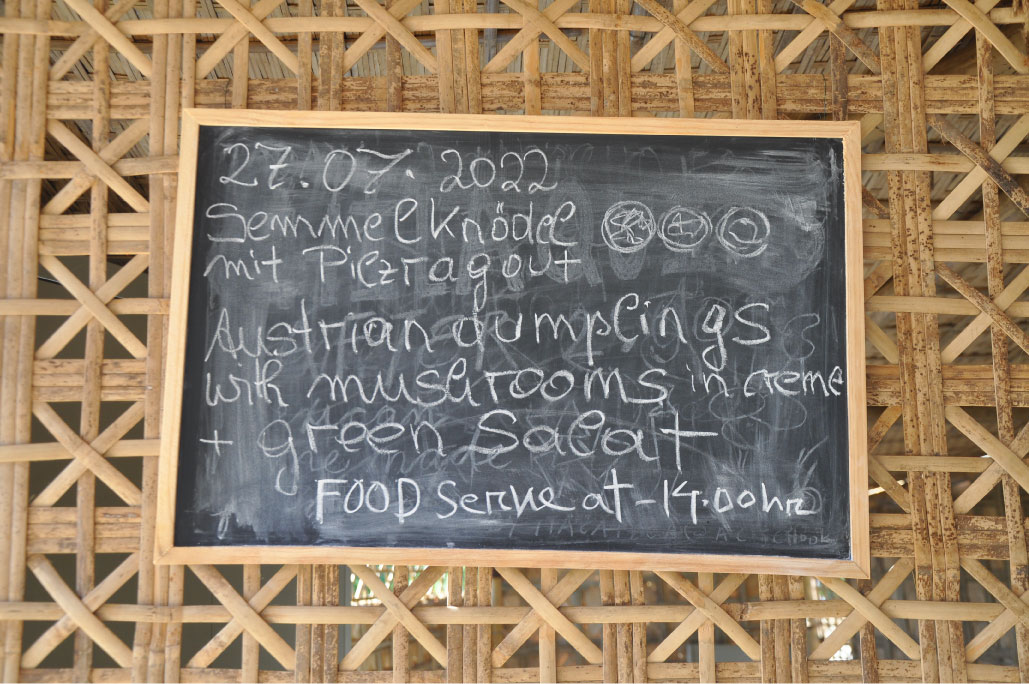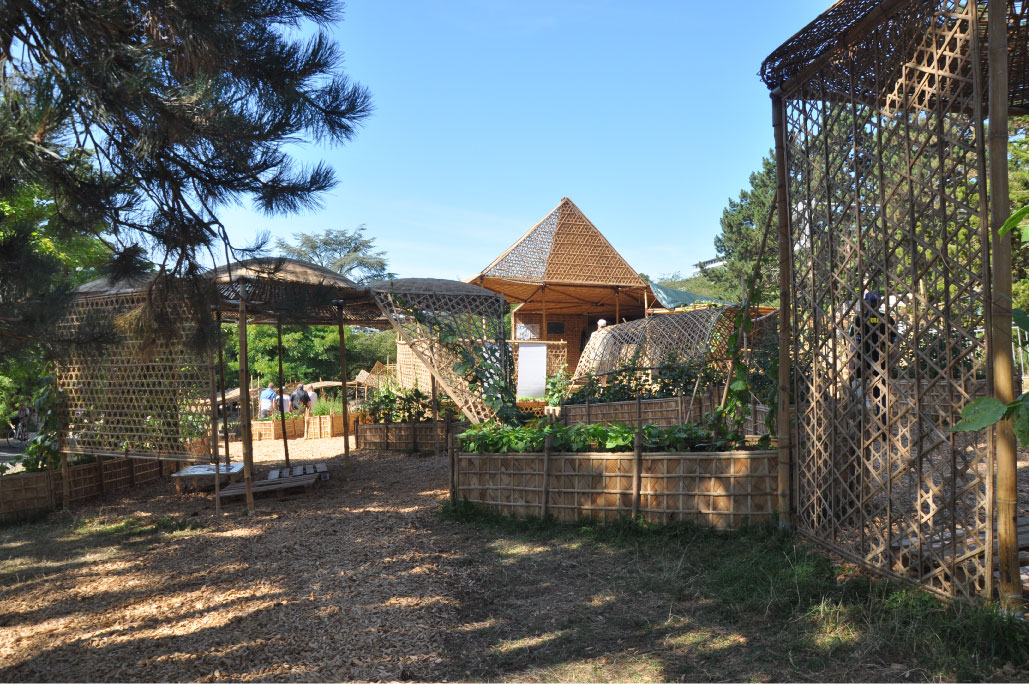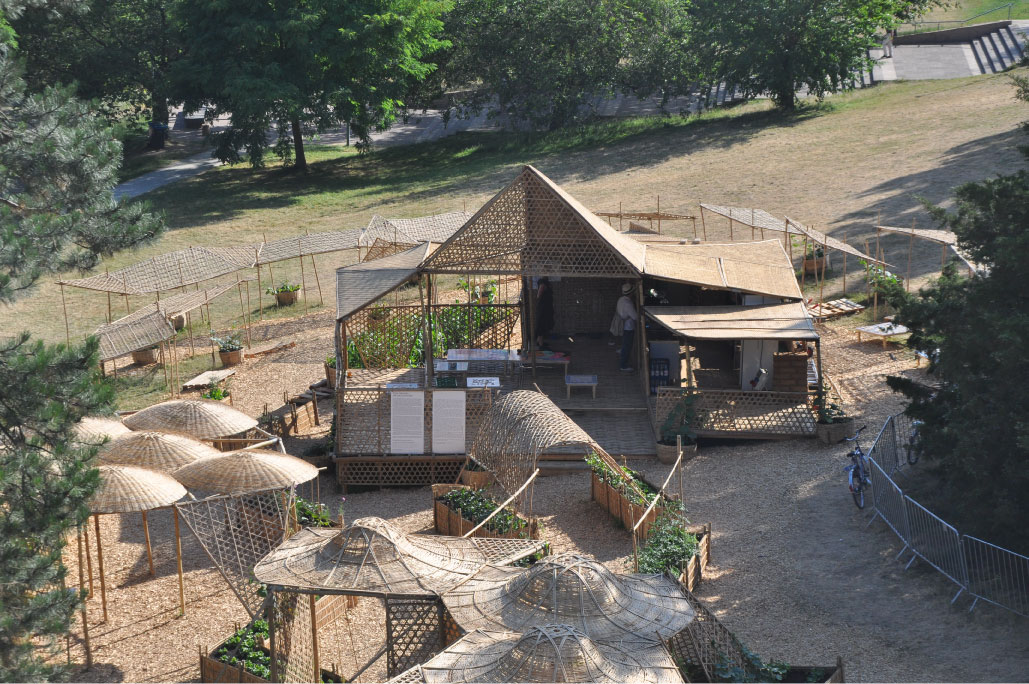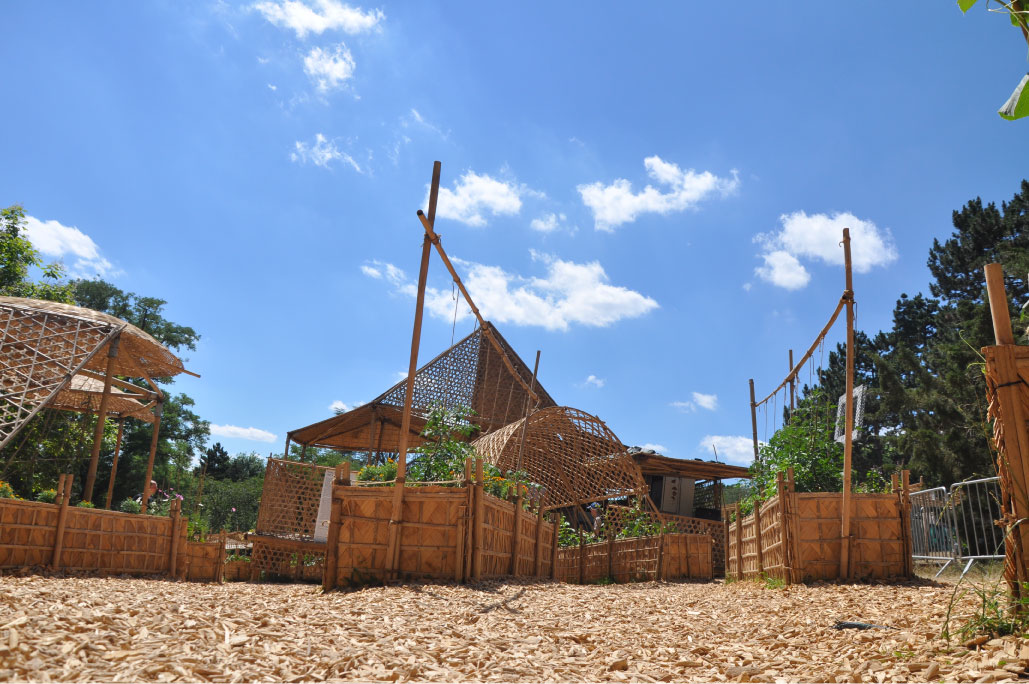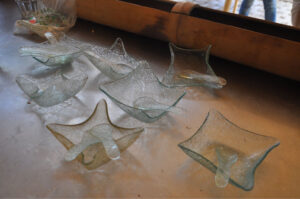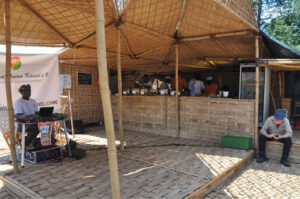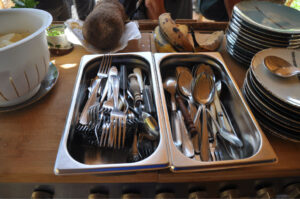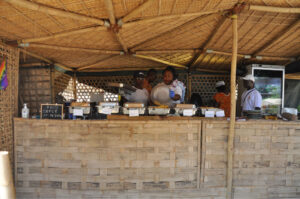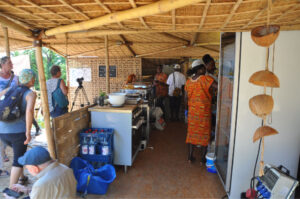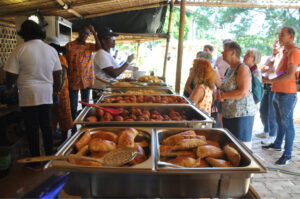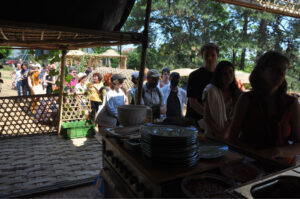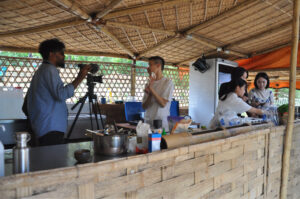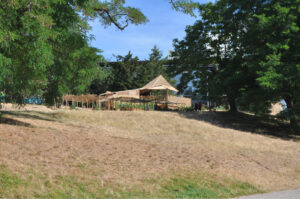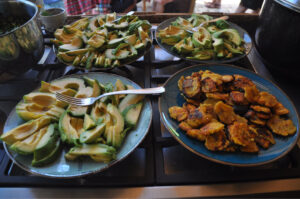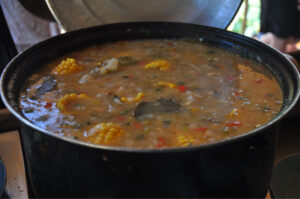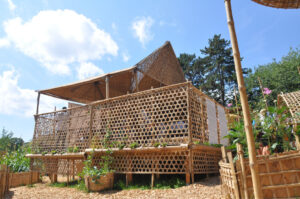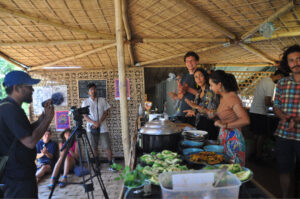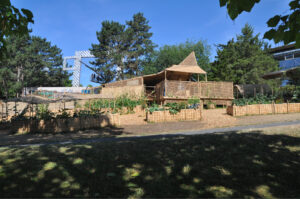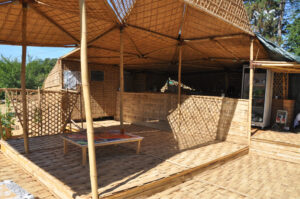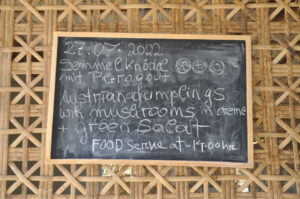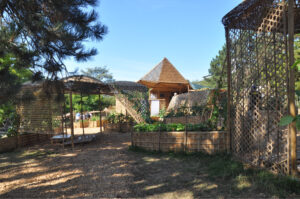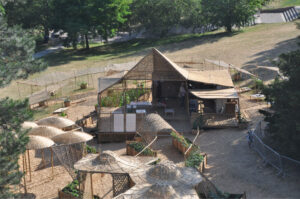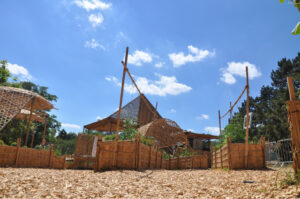পাকঘর PAKGHOR _2022
পাকঘর PAKGHOR – THE SOCIAL KITCHEN
2021-2022
Bamboo, Clay slabs, Iron Clumps etc.
In Bangla traditional kitchen stands for the word PAKGHOR In the countryside of Bangladesh, we did not have a concept of living room or dining room in past. PAKGHOR. was the place that usually covers both the needs of a family. It is indeed a meeting place for the family members at where they share, discuss, chat, plan and so on as part of a family life. From serious discussion to fun to emotion to anger or from plan to process to result related to one’s life eventually become part of a PAKGHOR. While the women of the family cook food, other members of the family provide the company in many ways. Although there is no sofa or dining table arrangement, PAKGHOR typically is predetermined to be a cooking as well as sitting and eating space.
The effect of Food Politics as a global language that somewhat respond to the the wars, politics, displacement, migration, coemmercially grown food, food control, conolisation, femine, hybrid culture and inorganic lifestyle we live in. Despite all negaive effects on our society, environment and culture, we are trying to look back in to our ethnicity, own roots and culture that our own ancestors lived in. Recalling the simple and natural lifestyle and culture we are stepping ahead to share this with a wider global audience. The history shows us repeatedly that behind all the wars or political crises food played a vital role to control the global economics.
The displacement, migration and force migration are historically have become part of our lives, which is still going on. From village to town to city to the capital to another country- a never ending process due to the centralization of every possible opportunity to live with. We speak about decentralization, decolonization often without searching out the hidden issues of world politics of dominance. The overpowering socio- political structure do not allow majority to move forward from their own locations. Apart from many other values we carry out the stories of our families, the taste of food, memories, emotions and so on. Looking at oneself, food is typically considered as a vital part of life. The recipes that are followed by our ancestors are not recorded. We usually try to carry the taste and memory along with us, as well as the stories of the food we love to experience once again despite the unavailability of the ingredients. We try our best to find the proper ingredients or supplementary articles to cook the same food using our remembrance and previous taste that we obtained from our very own PAKGHOR.
In addition to this, Britto Arts Trust organized 4 episodes of PAKGHOR Dhaka with several artists and collaborators.
100 days long activities will take place at PAKGHOR for 100 days. The stories and memories as well as the cooking will be documented alongside of other activations. The recipe and stories will be harvested in order to publish a book at Lumbung Press after the 100 days long journey. Britto welcomes all to use the sitting spaces around PAKGHOR as an alternative living room.
We are welcoming diverse nationalities, immigrants, Lumbung Members & Artists to cook, share and enjoy.
PAKGHOR DHAKA – ARTISTS & COLLABORATORS
Tarun Ghosh, RA Kajol, Saidul Haque Juise, Fareha Zeba, Jewel A Rob, Imran Hossain Piplu, Mehedi Hasan, Emran Sohel, Md. Khairul Alam, Ashim Halder Sagor, Sarah Jabin, Yasmin Jahan, Reetu Sattar, Milton Anwar, Farah Naz Moon, Jinnatun Jannat, Nijhum Zannatun Nahar, Farhan Ferdausi, Safiha Hossain, Trishna Paul, Shyamal Sarker, Shimul Saha, Ashim Halder Sagor, Aminul Islam Ashik
Venues of Pakghor Dhaka:
Residence of Mr. Ashraf Kaiser, Studio Zeba & Juise, Britto Space, Studio Mahbub & Lipi
ACKNOWLEDGEMENT
The PAKGHOR architecture is Supported by the Embassy of Germany in Bangladesh

